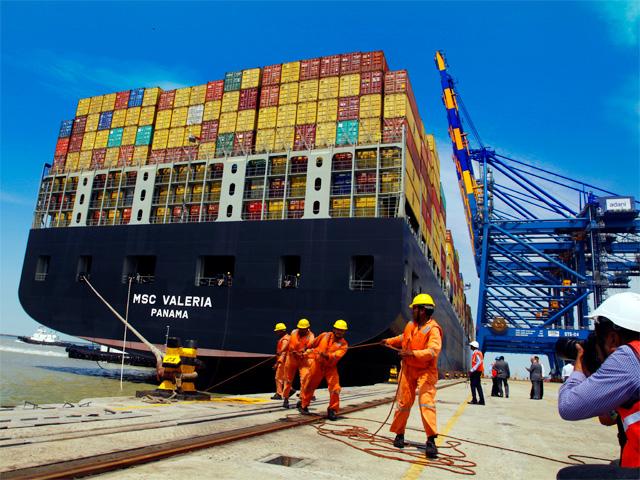The Union Cabinet on Monday approved a move for exchange of tariff concessions under the Asia Pacific Trade Agreement (APTA), towards expanding trade ties with a few nations in the region, including China.
The APTA has six member countries (Bangladesh, China, India, Laos, South Korea, and Sri Lanka) and covers a market with a GDP of $15 trillion, comprising nearly three billion people. Since this is a preferential trade agreement, the basket of items as well as extent of tariff concessions are enlarged during the trade negotiating rounds from time to time, according to an official statement. Till date, three rounds of trade negotiations had taken place, it added.

Advantage India
According to government sources, India is likely to benefit from offers of China and South Korea for duty concessions in sectors including textiles, chemicals and iron and steel. Industry sources, however, said the Indian industry had not gained much from APTA so far, especially in sectors such as textiles. India, meanwhile, in return has offered duty concessions on rail rolling stock, nuclear reactors and fissile material besides other raw materials to boost the ‘Make In India’ initiative, according to government sources.
International trade expert Nagesh Kumar, also Director & Head, UN-ESCAP’s South and South-West office, said, “APTA is relevant as it is the only preferential trade agreement in force between India and China. The concessions under APTA are on a give-and-take basis. India’s tariff concession offers are only in areas where it is comfortable and where it has got something in return.”
APTA (formerly the Bangkok Agreement) was inked in 1975 and is the oldest preferential trade pact among Asia-Pacific countries. The APTA is an initiative under the United Nations Economic and Social Commission for Asia and the Pacific (UN-ESCAP) for trade expansion through exchange of tariff concessions among developing country members.
Kumar, in comments made in his personal capacity, pointed out that though India is part of the Regional Comprehensive Economic Partnership (or RCEP, the mega-regional FTA between the 16 Asia-Pacific nations including India and China) negotiations, the RCEP will take some more time to be implemented as it is still under negotiations.
Though another mega-trade pact called the Trans-Pacific Partnership (between 12 Pacific Rim nations including the U.S.) is in the works, its future is clouded by uncertainty as the U.S. Presidential candidates, in election rhetoric, have been speaking against it, Kumar said.
The Cabinet approval on Monday will deepen the concessions being offered under this agreement, according to the statement. Approval was also given to amend the preamble of APTA to effect accession of Mongolia as the seventh participating State. These decisions will be implemented once all members ratify it by the Fourth Session of the Ministerial Council of APTA, slated to be held in January 2017 in Bangkok.